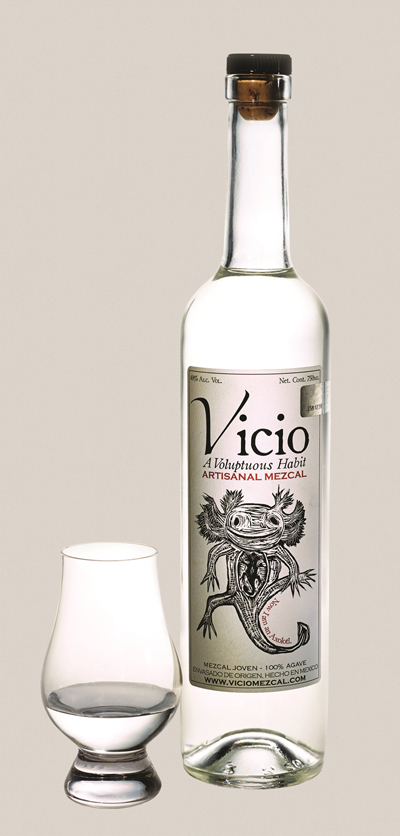Viciously Delicious
by Emily Kovach
Rosemarie Certo is the owner of Dock Street Brewing, one of the first regional microbreweries to embrace craft beer in the mid-1980s. Along with three business partners, she now has her sights set on another kind of craft beverage: mezcal. Mezcal is considered the “mother of tequila.” It’s primarily made in Oaxaca, Mexico, by small family producers. Agave plants, which take a minimum of seven years to grow, are roasted for days in pit ovens, then mashed with a horse-drawn stone wheel, fermented and double distilled to produce a smoky, complex spirit.
Dock Street Spirits works with a generations-old family of mezcaleros in Oaxaca to make their mezcal, which they call Vicio (Spanish for “vice”). Since 2011, they’ve traveled often to Mexico to develop this relationship and learn about the process.
Marilyn Candeloro, another partner at Dock Street Spirits, says these visits opened her eyes. “Seeing how it’s made… I fell in love with it,” she says. “It’s how these families are surviving in a crazy climate, and as the new generation realizes what they have, they are staying there instead of coming to America.”
They also worked closely with the family to develop the recipe to their exact specifications: a velvety smooth mouthfeel, with floral, spicy notes and subtle smokiness. “Most mezcal is harsh,” Certo notes, “but we wanted to evolve it to a high spirit.”
Certo and Candeloro both speak of mezcal with a reverential vocabulary usually reserved for certain psychotropic drugs. “Mezcal allows you to be able to transcend, to be very lucid,” Certo says. “It’s a drink that opens up your mind.”
Since officially debuting in June of 2014, they’ve produced about 2,500 bottles of Vicio mezcal, available in local restaurants like the White Dog Café, and for retail in a few New Jersey liquor stores, such as Canal’s in Pennsauken. Next up on their roster is Calvados—made with local apples—and rum. But for now, it’s all about the mezcal. “We knew that there was a space for mezcal. People are ready for it,” Certo says. “People who taste it, love it.”






